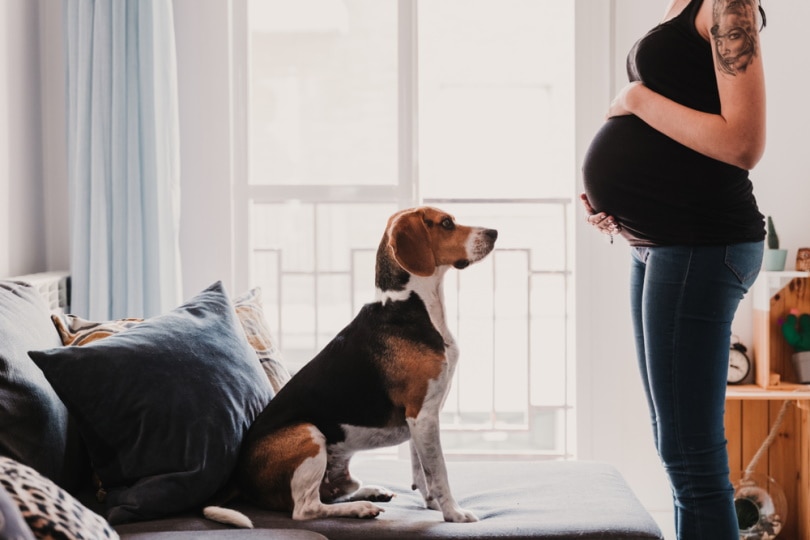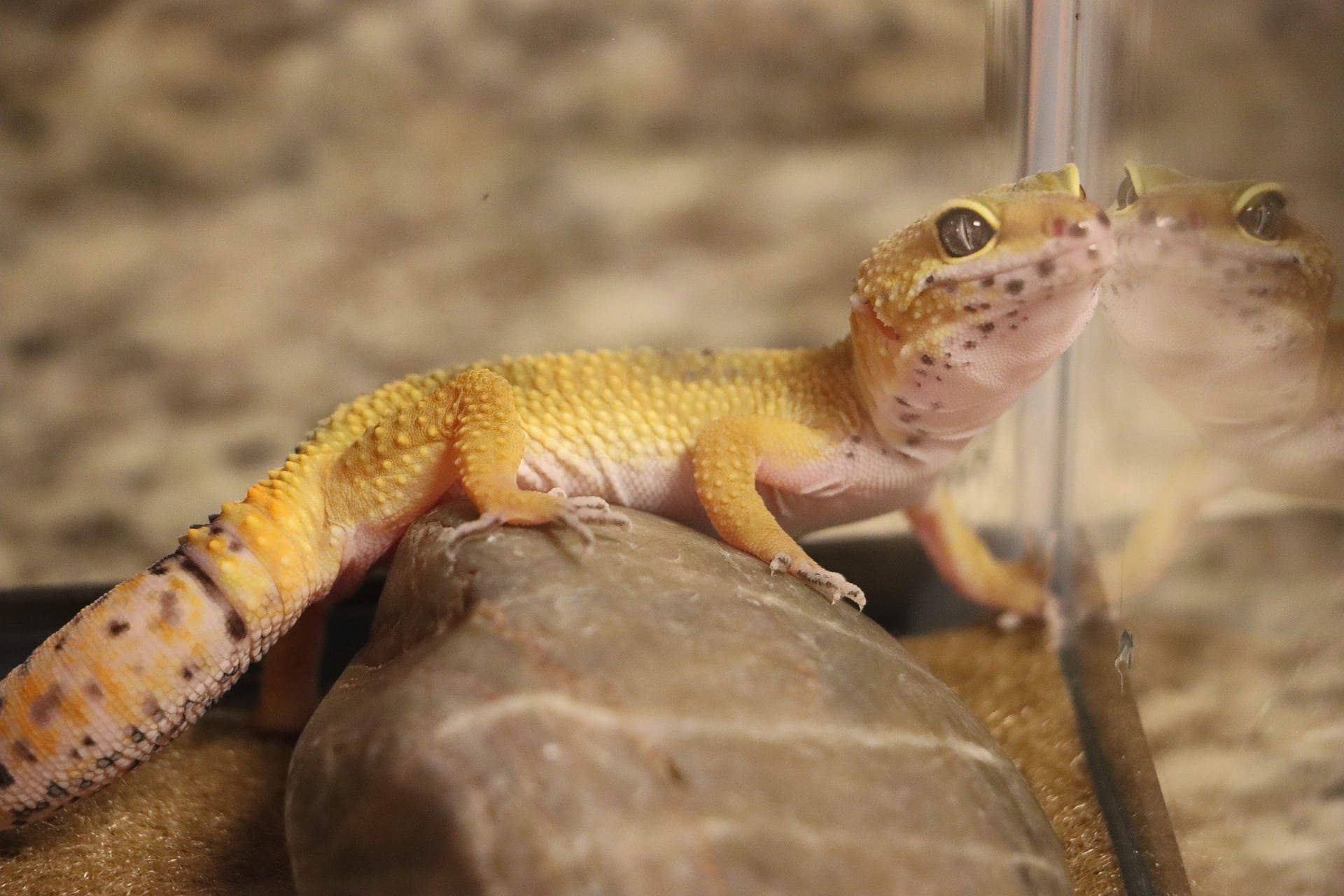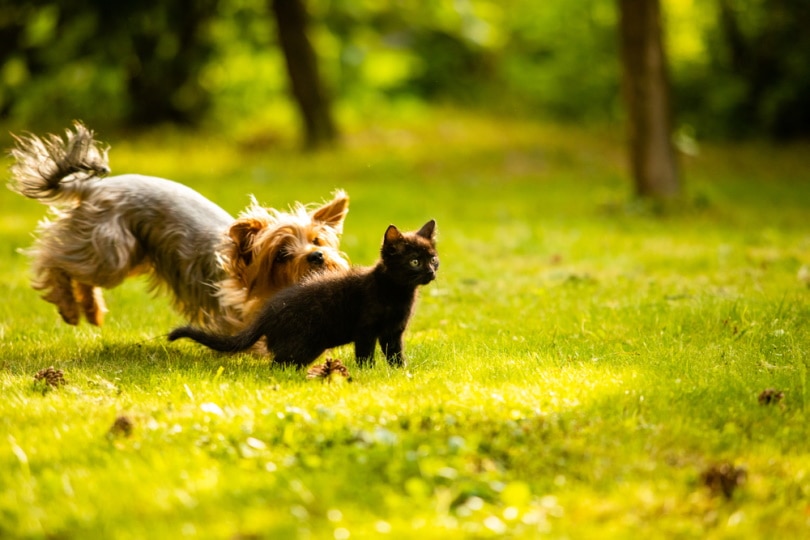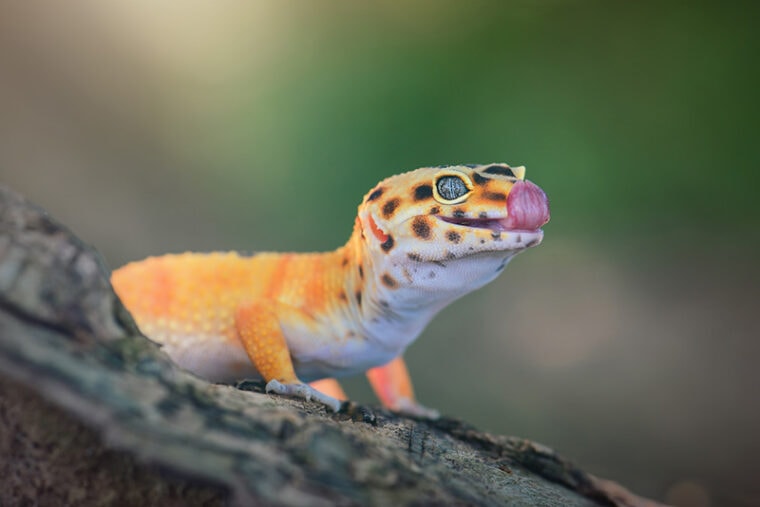
Click to Skip Ahead
Leopard geckos are captivating creatures that hail from regions stretching from Pakistan to Nepal. Given their unique environmental preferences for dry, sandy habitats, many terrarium enthusiasts across North America and beyond, painstakingly recreate these conditions for their pets. If you’re a novice to the world of gecko parenting, navigating their dietary requirements can be a tad challenging. It depends on their age, size and what they are being fed. Dive into this comprehensive guide to demystify the leopard gecko’s culinary preferences and ensure they remain healthy for years to come.
Understanding the Leopard Gecko’s Diet
Delving into the gastronomic world of the leopard gecko, one quickly realizes their preference for insects. As insectivores, it’s essential to provide them with a smorgasbord of these creepy crawlies. However, it’s pivotal to remember that not all insects are created equal in the eyes (and stomach) of your gecko.
While some bugs that are rich in fats might be relished as delightful treats, they must be served judiciously. Overindulging on them might not only spoil their appetite, but pave the way for undesirable weight gain and the associated health woes.
A good variety of insects will provide a more balanced diet than offering only one or two species.
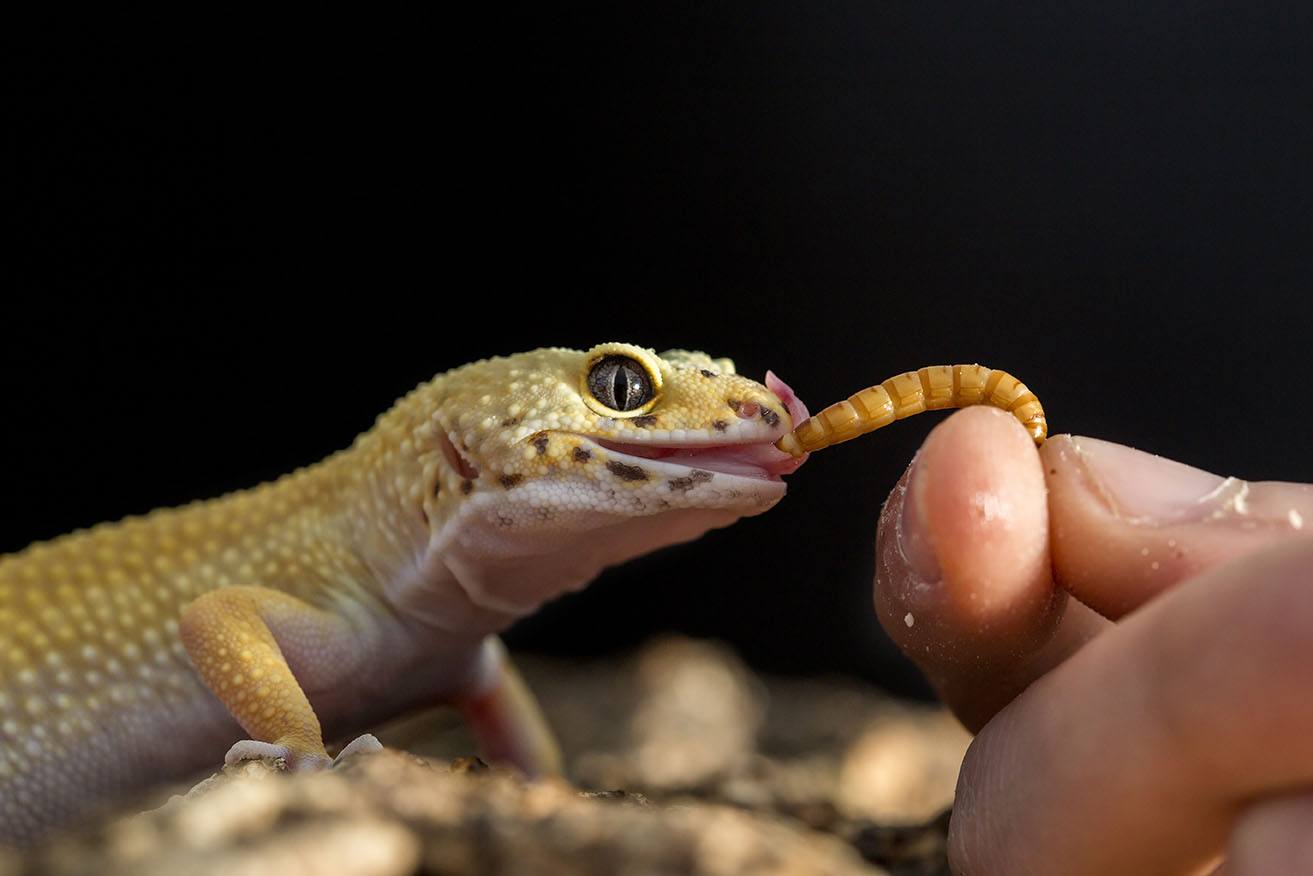
Steering Clear of Certain Foods
While they possess a broad dietary range, there are several foods leopard geckos should steer clear from. Surprisingly, fruits and vegetables top this list, primarily due to the gecko’s inability to digest cellulose present in plant fibers. This also necessitates a cautious selection of commercial reptile foods, which might contain these indigestible fibers. They also prefer live foods and may be reluctant to eat anything that doesn’t move. Other potential hazards include:
Feeding Guide for Leopard Geckos
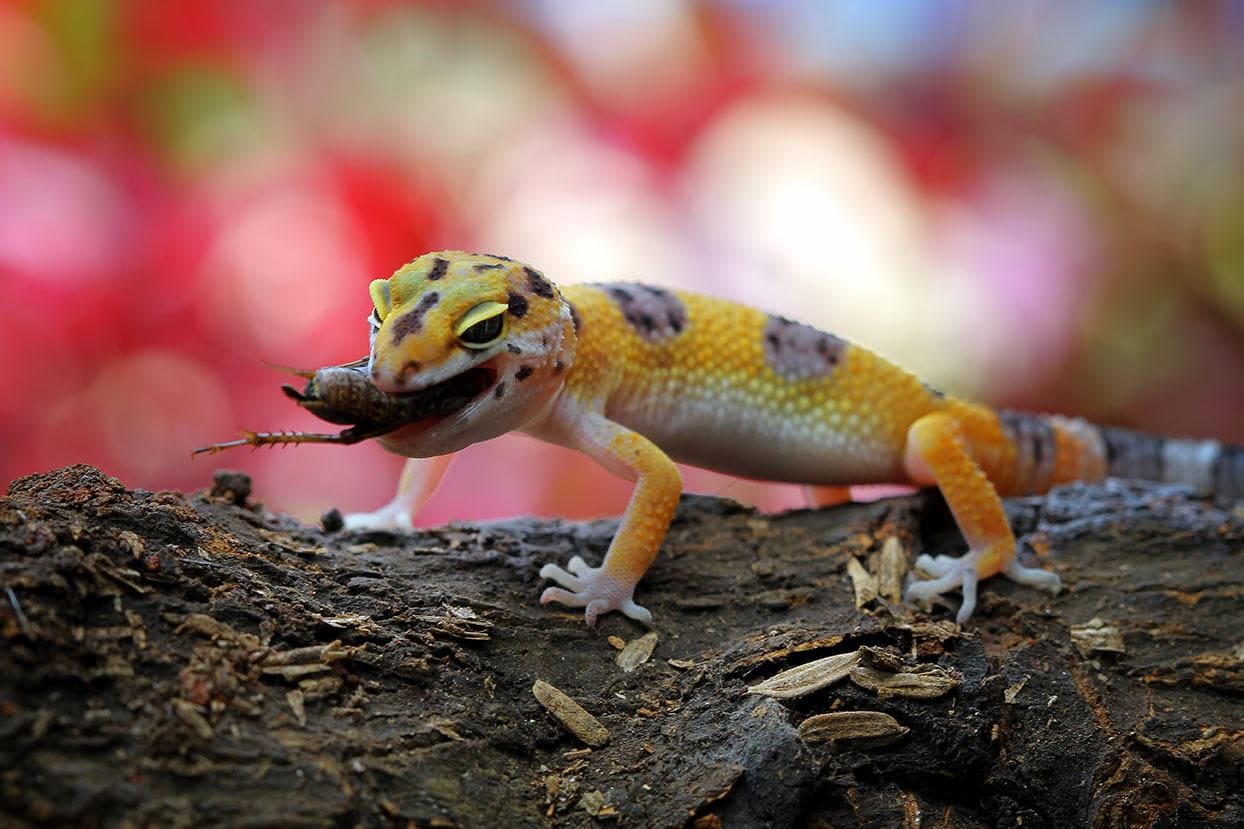
Leopard Geckos Feeding Chart
| Age | Size | Quantity of Food | Frequency |
| Newborn | 3 inches | 6 insects | Every day |
| 1 month | 4 inches | 8 insects | Every day |
| 3 months | 5 inches | 10 insects | Every day |
| 6 months | 6 inches | 12 insects | Every day |
| 9 months | 7 inches | 14 insects | Every other day |
| 1 + year | 8 inches | 16 insects | Every other day |
| 18 months | 10 inches | 20 insects | Every other day |
Source: https://oddlycutepets.com/feeding-leopard-geckos/
Can You Overfeed a Leopard Gecko?
Like any pet, leopard geckos can overindulge. While feeding them slightly more than the recommended amount on occasion is unlikely to cause harm, habitual overfeeding will. A sign of overeating includes a tail broader than its neck, indicative of excessive fat storage.
The Importance of Supplements
Gut Loading: To amplify the nutritional value of insects, it’s recommended to “gut load” them. This process involves feeding the insects a calcium-rich diet for several days before offering them to the gecko. It ensures your pet receives a wholesome meal.
Multivitamins and Calcium: Once insects are gut-loaded, dust them with a calcium and multivitamin powder mix before feeding. This step is crucial as it supplements any missing essential nutrients from the gecko’s diet. Ensure that the calcium or multivitamin powder contains Vitamin D3, essential for calcium absorption in the gecko’s body.
Special Treats and What Not to Feed
Leopard geckos love treats like wax worms, but due to their high-fat content, they should only be offered occasionally. Alternatives like super worms and beetle larvae can also be given in moderation. Always monitor their tail thickness as a health indicator.
While they might show curiosity, leopard geckos should never consume fruits, vegetables, or any plant-based foods. Their system isn’t equipped to digest cellulose, which can lead to health complications.
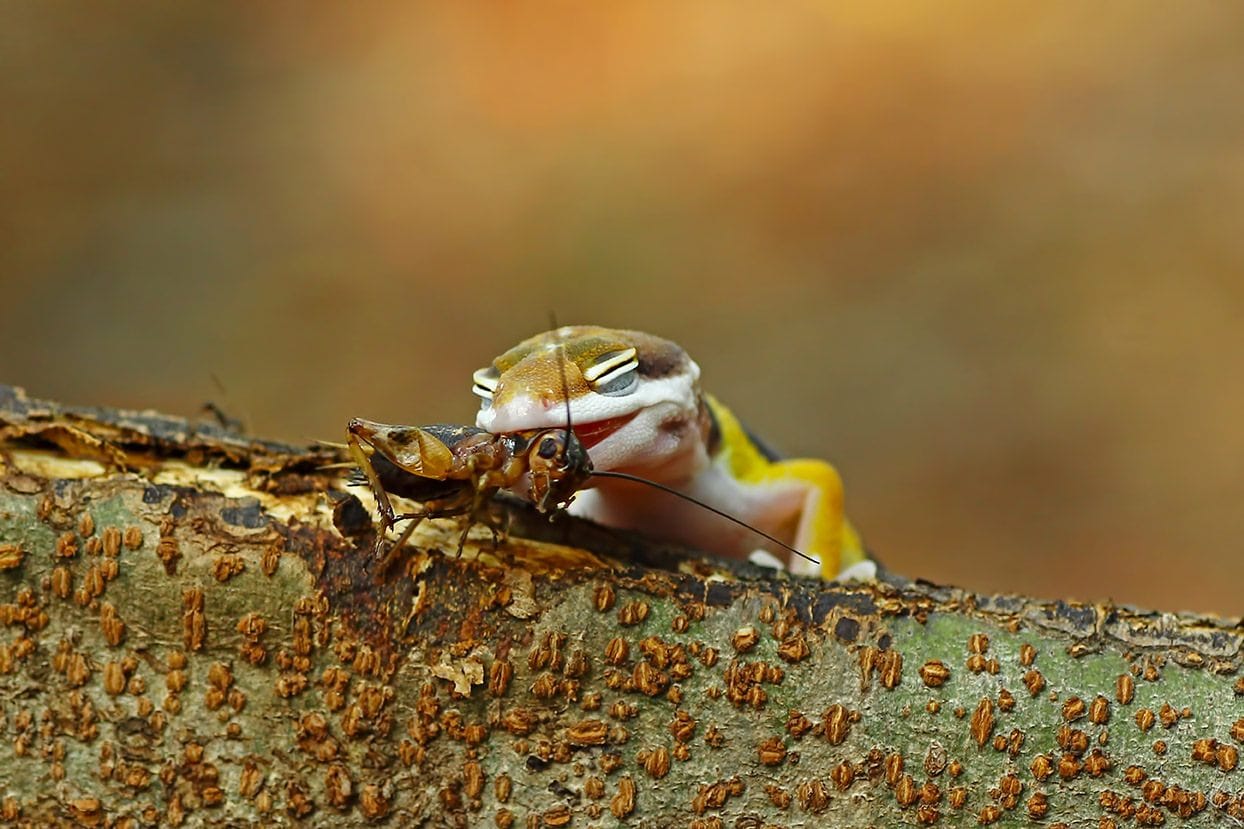
When Your Leopard Gecko Refuses to Eat
Various factors, from habitat conditions like temperature and lighting to health issues, can affect a leopard gecko’s appetite. If your pet abstains from eating, ensure the habitat conditions are optimal and consult with an exotics veterinarian.
Conclusion
Arming yourself with knowledge about your leopard gecko’s dietary requirements is paramount for their well-being. Using the feeding guide, understanding the importance of gut-loading and supplementation, and being aware of foods to avoid, are pivotal for their longevity. With proper care, these fascinating creatures can thrive, bringing joy and intrigue to your home.
Also see:
- Crested Geckos vs Leopard Geckos: The Differences (With Pictures)
- How Much Does a Leopard Gecko Cost?
Featured Image Credit: DWI YULIANTO, Shutterstock



